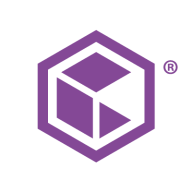

Commvault Cloud and NetApp Cloud Volumes ONTAP compete in the cloud data management space. Commvault is stronger in comprehensive data management and protection, while NetApp excels in performance and cost optimization.
Features: Commvault Cloud provides features such as direct SAN backup, global deduplication, and integration with public cloud services, enabling efficient data management and replication. NetApp Cloud Volumes ONTAP offers ease of management, snapshot capabilities, and storage efficiency through deduplication and compression.
Room for Improvement:User interface enhancements and better integration with emerging technologies like AI could improve Commvault Cloud. NetApp Cloud Volumes ONTAP could enhance its scaling capabilities, improve manageability for large deployments, and increase integration with a broader range of cloud services.
Ease of Deployment and Customer Service: Commvault Cloud is praised for robust customer service and technical support, with quick response times and effective problem resolution. Although NetApp Cloud Volumes ONTAP offers satisfactory customer service, some users suggest improvements in local support and addressing the initial learning curve. Commvault users appreciate maintaining control over multi-environment deployments.
Pricing and ROI: Commvault Cloud offers cost-efficient subscription-based licensing models, offering good ROI through operational time savings and infrastructure cost reduction. NetApp Cloud Volumes ONTAP offers cost efficiencies with storage reduction features like deduplication, providing flexible pricing models suitable for large data volumes. Commvault is noted for competitive pricing, while NetApp's aggressive pricing effectively lowers storage costs as data scales.
At the pre-sale cycle, we have spocks aligned from Commvault with whom we get in touch, and they provide all the required support that we need.
The number of people who know Commvault Cloud is lesser compared to Veeam.
Customer support has very closed departments, requiring us to shuffle between them to get one thing done because representatives have limited accessibility.
It wouldn't help with outages either; the scaling is manual, and there are no processes we've used to automate that for unexpected scenarios.
I have not faced any downtimes with Commvault Cloud.
Commvault Cloud is highly stable, and I would rate it a ten out of ten.
I would like to see AI capabilities in Commvault Cloud.
I feel that the support is not yet up to the mark, with not enough professional engineers to provide assistance.
My opinion is that support is generally very good. There are instances where they take longer to respond or resolve issues, especially when customers have urgent needs, but ultimately, resolution is achieved.
It would be nice to see technology supporting the Elastic Fabric Adapter on Amazon AWS, therefore getting RDMA technology for more low-latency connections.
Commvault Cloud is expensive, and there is room for the price to be 10-15 percent lower than what they are charging currently.
Other features include endpoint solutions, integration with Office 365, ransomware protection, archival for long-term retention, and no ingress or egress charges.
We can back up unlimited TBs due to our per node license.
The public cloud acts as a bigger solution for the on-premise while the on-premise acts as a DR for the public cloud workloads.
The granular ability to divide up the performance and the amount of storage you want is really fantastic.
| Product | Market Share (%) |
|---|---|
| Commvault Cloud | 6.1% |
| NetApp Cloud Volumes ONTAP | 0.9% |
| Other | 93.0% |


| Company Size | Count |
|---|---|
| Small Business | 57 |
| Midsize Enterprise | 24 |
| Large Enterprise | 82 |
| Company Size | Count |
|---|---|
| Small Business | 8 |
| Midsize Enterprise | 11 |
| Large Enterprise | 53 |
Commvault Cloud is the ultimate cyber resilience platform built to meet the demands of the hybrid
enterprise. Beyond its core functionality of data backup and recovery across diverse workloads, including applications, databases, virtual machines, and files, Commvault Cloud stands out as a robust defense against ransomware. Going beyond backup, the platform integrates advanced data security features such as encryption, access control, and threat detection, safeguarding against unauthorized access and cyber threats.
With tools for data management, classification, and migration, businesses can optimize storage costs, enhance accessibility, and comply with regulations seamlessly. Boasting cloud integration with major providers like AWS, Azure, and Google Cloud, Commvault Cloud leverages the scalability and flexibility of the cloud for comprehensive data protection and management. The platform's automation capabilities streamline tasks, and its reporting and analytics features provide valuable insights into data usage, potential risks, and optimization strategies. Commvault Cloud is not just a security tool; it is a key component of cyber resilience, enabling organizations to not only protect against cyberattacks but also recover swiftly and minimize the impact of incidents. Elevate your cyber resilience strategy with Commvault Cloud.
NetApp Cloud Volumes ONTAP is an efficient storage management solution for managing and storing data in the cloud. It offers seamless integration with cloud providers, advanced data replication capabilities, and high data protection. With reliable performance, it is ideal for industries like healthcare and finance.
We monitor all Cloud Backup reviews to prevent fraudulent reviews and keep review quality high. We do not post reviews by company employees or direct competitors. We validate each review for authenticity via cross-reference with LinkedIn, and personal follow-up with the reviewer when necessary.